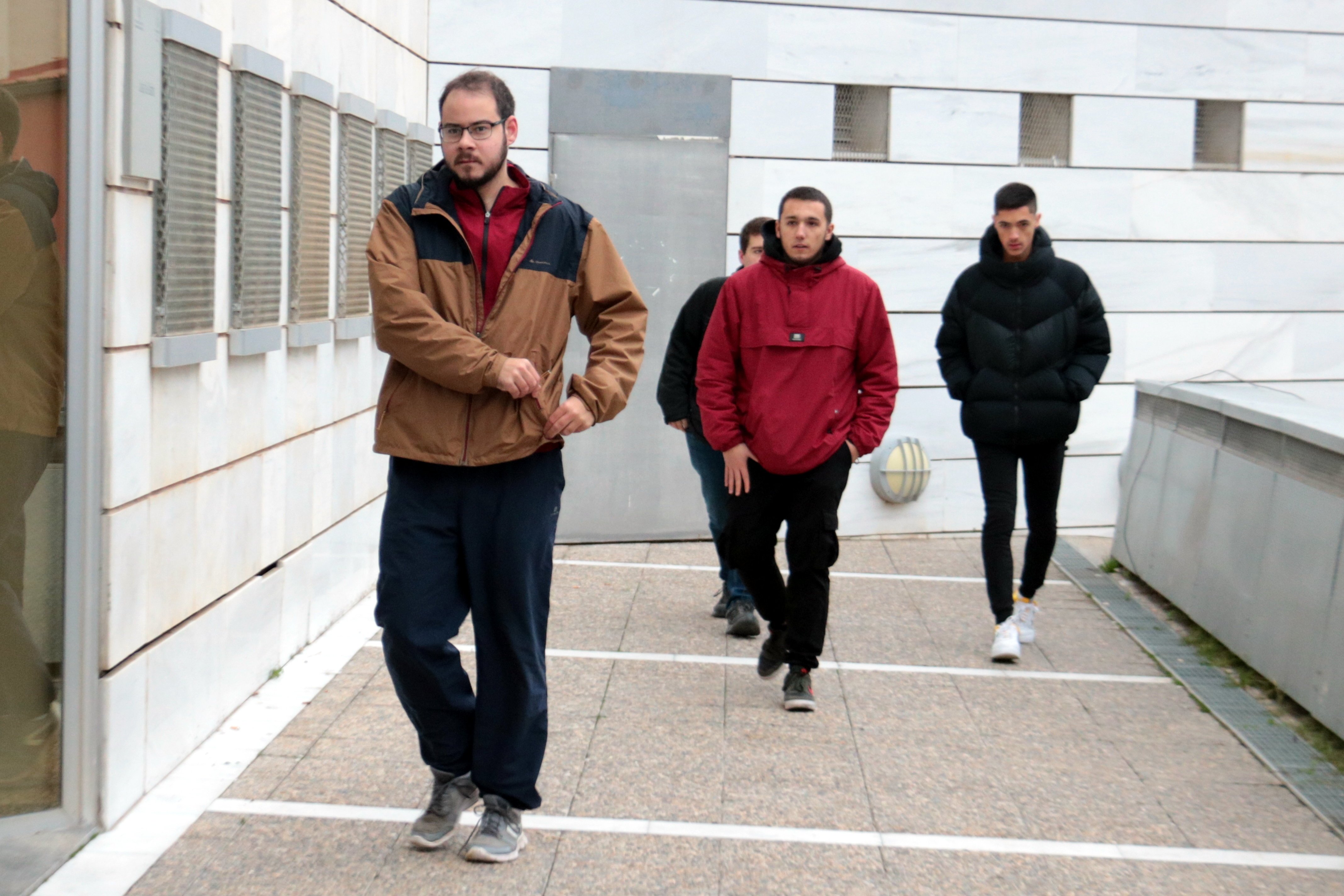The rapper from the Catalan city of Lleida, Pablo Hasél, has denounced the court actions he has faced over the last few weeks - leaving him with new convictions - and has said that the sentences he is accumulating show that the state wants to "punish him in an exemplary way for so many years of struggle from music and the streets". Hasél's lawyer has requested the suspension of his imprisonment, which could be ordered by a judge due to the Spanish Supreme Court's rejection of an appeal against a second conviction for songs lyrics and social media statements which "glorify terrorism".
If Spain's National Audience judge orders him to go to prison, Hasél has said he will not show up voluntarily. But neither will he go into exile, he said, nor ask for a pardon, as he does not regret the tweets for which he was convicted which, he says, "denounced and fought against injustices." A platform calling for his release, Llibertat Pablo Hasél, is organizing rallies of support for the musician across the Spanish state on July 4th.
"Jail isn't the end of anything, it's another trench from which I can fight and contribute" raps Pablo Hasél, in his song 'Me quedo aqui'.
On June 8th, the Supreme Court dismissed the rapper's appeals against a sentence of 9 months and one day of imprisonment for glorifying terrorism "with the aggravating circumstance of recidivism" and for insults and slander to the Spanish crown as well as Spanish police and security forces. Hasél was convicted of including in his social media profile comments, in the form of tweets, that incorporated videos which the court asserts incited violence, with comments that "glorified" and "harassed" the monarchy and other Spanish institutions.
This was his second conviction for glorifying terrorism, as in 2014 he had been sentenced to two years' prison for some of his song lyrics. According to the ruling, Hasel's lyrics "praise the actions and members" of former terrorist groups such as the GRAPO, ETA and Terra Lliure, as well as "justifying their existence." In addition, it asserted that Hasel was calling for the return of these groups and presented their members as victims of democracy. This first sentence was ratified by the Supreme Court in 2015, but sentencing court then agreed to suspend entry into jail in 2019, on the condition that Hasél did not re-offend for three years.
Now, Hasél's lawyer has asked for the same approach to be taken for the second conviction for glorifying terrorism. As the rapper from Lleida explained this Friday, the judge has not yet ruled. If he is finally ordered to jail for a second offence, Hasél says that he won't try and leave the country, but neither will be present himself at the prison to say "good morning" - implying that he will wait for the security forces to come get him. He will not go into exile, he said, because he believes prison "is another front for the fight, from which my struggle may end as more costly to the state than if I were in exile." If in the end, however, "they conquer my freedom, it will be for solidarity." “I did it, I'm doing it now and I will do it again,” he concluded.
Hasél made these statements at a press conference this Friday in Lleida, accompanied by about fifteen supporters. At this event it was announced that demonstrations have been called for July 4th, "or sooner if they arrest him," in cities including Lleida, Barcelona and Madrid.
Mallorcan rapper Valtònyc, convicted on similar charges related to his own song lyrics, was ordered to jail to begin a prison sentence in 2018. Instead, he sought exile in Belgium, from where he has been successfully resisting Spain's extradition claims for two year.
Further convictions
In addition to the two final sentences for glorification of terrorism, Pablo Hasél was sentenced on June 4th by a criminal court in Lleida to six months' prison for assaulting a television journalist during a sit-in at the University of Lleida in 2016. According to the judge, it was proved that Hasél pushed, insulted and sprayed the journalist with a cleaning liquid and for this reason, in addition to the prison sentence, he was ordered to compensate the victim with a payment of 12,150 euros. The judge, however, ruled out imposing a restraining order on Hasél, as he "now" posed no danger to the victim.
The sentence also convicted the rapper and three other defendants of a crime of coercion and imposed a fine of 5,400 euros on each for preventing journalists from recording, by covering their cameras with hands or clothes, insulting them, and preventing them from entering to the office.
In addition, on June 15th, another criminal court in Lleida sentenced Hasél to two and a half years in prison and a fine of 2,400 euros for assaulting a man who testified in the case of an alleged assault by a police officer on a minor in 2017, in which the agent was acquitted. According to the complainant, Hasél kicked him and threatened him while accusing him of “false testimony” in the trial held weeks earlier. However, the rapper stated that this man was waiting for him and confronted him.
Hasél confirms that he has appealed against both of these convictions.
Pending trials
Pablo Hasél has two further pending trials. One of them for writing a tweet expressing his wish that Betis football club's plane would crash because the Ukrainian player Roman Zozulya, whom Hasel accuses of being a "neo-Nazi", was traveling on it. “If it weren’t for the fact that the pilots and flight attendants would die, I'd want the Betis plane to crash,” he wrote.
The other trial which he awaits is for incidents during a protest in Lleida against the arrest of Carles Puigdemont in Germany on March 25th, 2018. He is accused of public disorder and assault on agents of authority.

